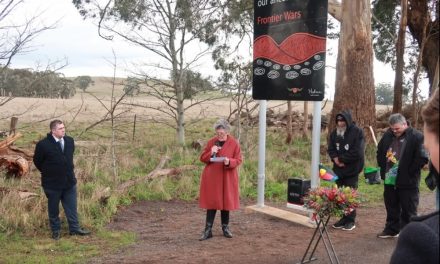Brian Hood
Two key outcomes from the Council meeting held on the 18th June were the adoption of an Arts & Culture Strategy and a Fair Access Policy.
The Arts & Culture Strategy – council’s first – seeks to support local artists of all kinds in the provision of creative cultural experiences with the aim of enriching community wellbeing. The Fair Access Policy seeks to address barriers experienced by women, girls, trans, non-binary and gender diverse people in accessing and using community sports infrastructure and to assist in eliminating systemic causes of gender inequality.
Council is proud to develop and implement such policies and strategies.
Our next meeting is scheduled for the 25th June with the sole agenda item being the consideration of adopting the budget for 2024/25. It is highly unlikely there will be any material change to the draft budget that was released in late May, notwithstanding the consultation period conducted up to the 13th June.
The key features of the budget are a proposed 2.75% increase to rates, a reduction of $1.5m in operating costs, increased borrowings of $5.5m to fund the capital works program and the project to replace Daylesford Town Hall’s roof and electrical systems. The very constrained cash environment necessitates the scaling back of the capital works program to focus on completion of works already underway. Other aspirational projects will only advance to the construction stage in the event that grant funding is secured.
Of serious concern is the budget’s projection that there will be minimal funds reserved to buffer against emergencies. In recent years Council expended $15m in flood and storm recovery works, mostly on roads, while recouping $11m in recovery grant funding from other tiers of government.
Although the draft budget was released without community consultation on the viability of proposed remedies, it at least quantifies a projected $4m cash shortfall in each of the years 2025/26 and beyond. Let’s be very clear – a $4m cash shortfall each year is substantial – equating to 20% of rates income or 12.5% of operating costs. The potential remedies, to be pondered by councillors and community in the coming two months, are a combination of a rate increase up to 20% and/or a reduction in services by up to 12.5%. A variation to rates is subject to approval from the Essential Services Commission and, if granted, would be applicable in 2025/2026.
Council is obliged to prepare a long-term financial plan (LTFP), spanning the next 10 years, and councillors are obliged to ensure the organisation’s financial sustainability. The revised LTFP is due to be adopted in early September and must guide the next Council Plan, which is to be prepared early in the new term.
The public dialogue is now, quite appropriately, questioning the viability of Hepburn Shire. The Wombat Post article published on the 31st May accurately captured the salient points. The CEO and I continue to inform our state MPs and relevant Ministers on the financial outlook and proposed actions.
On another vitally important topic councillors and management readily agreed to extend the consultation period on the draft town structure plans and rural strategy to the 26th June. Preliminary analysis suggests the State Government’s allocation of a 3000 new housing target for Hepburn Shire closely aligns with the growth projections underpinning the draft plans. I encourage residents to make submissions. The draft plans are slated for adoption in early September.
Cr Brian Hood is the elected Councillor for Coliban Ward and is currently the Mayor of Hepburn Shire.
We offer this space as an information channel from Council to the community. Councillor Columns and Mayor’s Messages are not subject to editorial review by our editorial committee but are published as we receive them from our elected Councillors.





